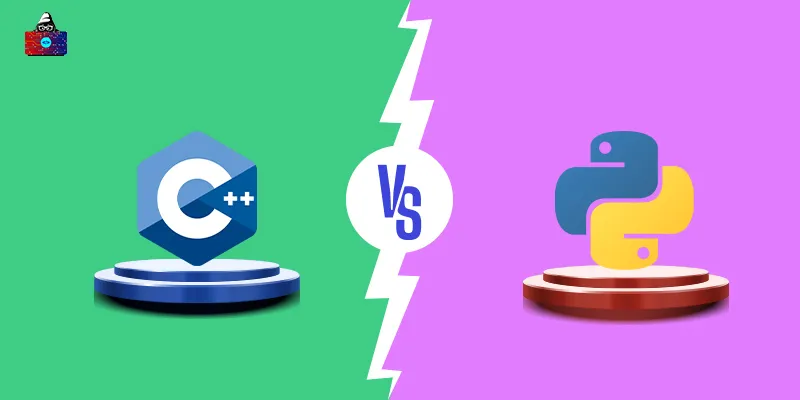In the dynamic realm of software development, choosing the right programming language is a critical decision that can significantly impact the success of a project. C# (pronounced C-sharp) and Python are two prominent languages that cater to different needs and possess unique characteristics. This article delves into the comparison of C# and Python, exploring their strengths, use cases, and factors to consider when selecting the right language for your project.
Understanding C# and Python:
C#:
C# is a statically-typed, object-oriented programming language developed by Microsoft. It is widely used for building Windows applications, web applications, and enterprise-level software. C# is part of the .NET framework, offering seamless integration with Microsoft technologies.
Python:
Python, on the other hand, is a dynamically-typed, high-level programming language known for its simplicity and readability. It is versatile and supports multiple programming paradigms, including procedural, object-oriented, and functional programming. Python is favored for its ease of learning and extensive community support.
Comparison Factors:
**1. Performance:
- C#: C# is a compiled language that often leads to better performance, making it suitable for resource-intensive applications and games.
- Python: Python is an interpreted language, generally considered slower than C#. However, for many applications, the difference in performance might not be significant.
**2. Syntax and Readability:
- C#: C# has a syntax similar to other C-based languages, making it familiar for developers who have experience with Java or C++. It emphasizes strong typing, leading to code that is often more verbose.
- Python: Python’s syntax is clean and concise, focusing on readability. Its indentation-based block structure enforces a clear and consistent coding style.
**3. Ecosystem and Libraries:
- C#: C# has a strong ecosystem, particularly for Windows development. It integrates seamlessly with the .NET framework, providing access to a vast array of libraries and tools.
- Python: Python boasts an extensive standard library and a rich ecosystem of third-party libraries. It is renowned for its versatility, supporting domains from web development to data science.
**4. Platform Compatibility:
- C#: While C# originated in the Windows environment, efforts like .NET Core and .NET 5 have expanded its support to other platforms, including Linux and macOS.
- Python: Python is inherently platform-independent, and code written in Python can run on various operating systems without modification.
**5. Community and Support:
- C#: C# has a robust community, especially within the Microsoft ecosystem. It benefits from extensive documentation and support from Microsoft.
- Python: Python’s community is known for its inclusivity and accessibility. The vast community contributes to a wealth of resources, tutorials, and third-party packages.
**6. Learning Curve:
- C#: C# is considered more complex for beginners due to its strong typing and syntax rules. However, developers familiar with other C-based languages may find it easier to grasp.
- Python: Python’s readability and simplicity contribute to a gentle learning curve, making it an excellent choice for beginners. Its straightforward syntax allows developers to focus on problem-solving rather than language intricacies.
**7. Use Cases:
- C#: C# excels in Windows application development, game development with Unity, and enterprise-level software. It is a go-to choice for companies invested in the Microsoft ecosystem.
- Python: Python is versatile and widely used in web development, data science, artificial intelligence, and scripting. Its applications span diverse domains, making it a popular choice for startups and established enterprises.
Factors to Consider When Choosing:
**1. Project Requirements:
- Consider the specific requirements of your project. If it involves Windows development or integration with Microsoft technologies, C# might be the better fit. For a broader range of applications, Python offers flexibility.
**2. Development Speed:
- Python’s concise syntax and dynamic typing contribute to faster development in many scenarios. If rapid development is a priority, Python may be a suitable choice.
**3. Ecosystem Integration:
- If your project relies heavily on existing libraries or tools within a particular ecosystem, choose the language that seamlessly integrates with those resources. C# is integral to the Microsoft ecosystem, while Python has a broad and diverse ecosystem.
**4. Community and Support:
- Assess the availability of community support and resources for each language. Consider factors such as documentation, forums, and community engagement to ensure ongoing support for your chosen language.
**5. Long-Term Maintenance:
- Evaluate the long-term maintenance requirements of your project. Consider factors like the availability of developers skilled in each language, community support, and the stability of the language itself.
**6. Scalability:
- If scalability is a crucial factor, particularly for large enterprise-level applications, C# offers strong support. Its performance and integration with the .NET framework make it suitable for scalable solutions.
Conclusion: Making an Informed Choice
In the perpetual debate of C# vs Python, there is no one-size-fits-all answer. The choice between these languages depends on the specific needs and goals of your project. C# excels in Windows development and enterprise applications, while Python’s versatility makes it an excellent choice for a wide range of domains.
In making your decision, carefully weigh factors such as performance, readability, ecosystem integration, and long-term maintenance. Consider the learning curve for your team and the availability of developers proficient in each language.
Remember, the success of your project lies not just in the language you choose but in how well it aligns with the unique requirements and aspirations of your development endeavor. This article aims to guide you in making an informed decision and setting the foundation for a successful and efficient software development journey.





